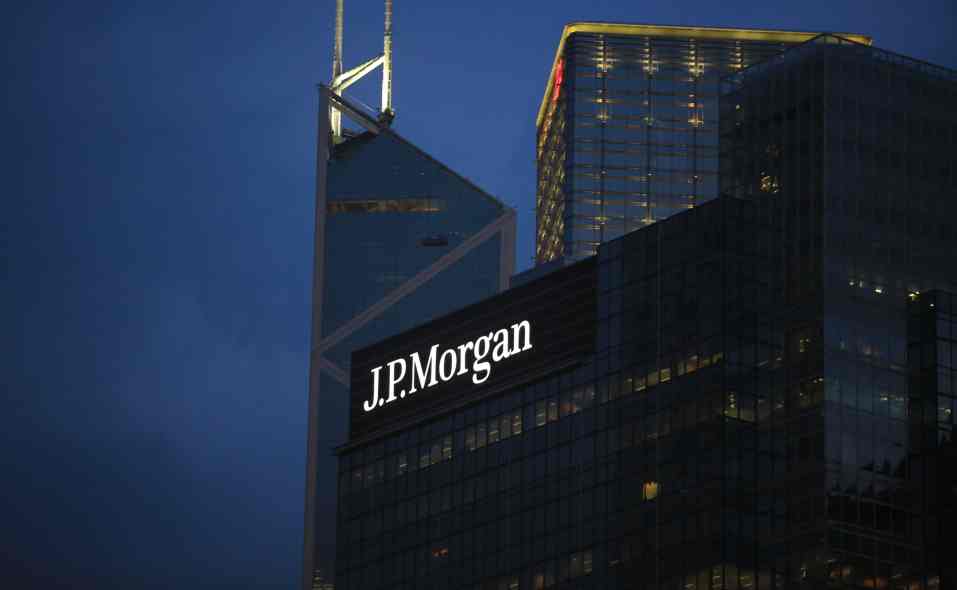JPMorgan launches its first tokenized blockchain collateral settlement with BlackRock and Barclays

Banking giant JPMorgan on Wednesday launched its first blockchain-powered collateral settlement platform for clients. Known as the Tokenized Collateral Network (TCN), the in-house blockchain-powered tokenization application helps facilitate the transformation of traditional assets into digital assets, paving the way for more expeditious and secure on-chain settlements.
In its first public transaction between BlackRock Inc. and Barclays Plc., JPMorgan’s Tokenized Collateral Network (TCN) was used to tokenize shares from a BlackRock money market fund. TCN later converted shares from a money market fund into digital tokens. These tokenized shares were later used as collateral for an over-the-counter derivatives trade with Barclays. Subsequently, these tokens were transferred to Barclays Bank, serving as security for an over-the-counter derivatives exchange between the two companies.
This live transaction marks the first instance of TCN in action and signifies a notable step forward in the evolution of blockchain technology within financial markets. TCN holds the potential to revolutionize the process of collateral exchange, introducing improvements in speed, efficiency, and security.
“Money market funds play an important role in providing liquidity to investors in times of high market volatility,” Tom McGrath, deputy global chief operating officer of the cash management group at Blackrock said in a statement. “The tokenization of money market fund shares as collateral in clearing and margining transactions would dramatically reduce the operational friction in meeting margin calls when segments of the market face acute margin pressures.”
According to Bloomberg, the TCN marked its first trade settlement by partnering with asset management behemoth BlackRock. The TCN application empowers investors to leverage their assets as collateral. By leveraging blockchain technology, TCN enables investors to transfer ownership of collateral without necessitating the movement of assets in underlying ledgers.
The initial internal trial of the TCN was conducted by JPMorgan in May 2022, and now that the TCN is live, there is a pipeline of other clients and transactions in the works. The primary objective behind the TCN’s launch was to streamline and enhance the traditional settlement process via blockchain technology, rendering it faster, more secure, and more efficient.
Tyrone Lobban, the head of Onyx Digital Assets at JPMorgan, explained that the TCN platform has the capacity to unlock capital, allowing it to be utilized as collateral in ongoing transactions, thereby enhancing efficiency on a significant scale. The platform supports the creation, transfer, and settlement of tokenized traditional assets and facilitates almost instantaneous movement of collateral, in stark contrast to earlier methods.
“JPMorgan’s Tokenized Collateral Network, or TCN, was used by BlackRock Inc. to turn shares in one of its money market funds into digital tokens, which were then transferred to Barclays Plc as collateral for an over-the-counter derivatives trade between the two institutions, Tyrone Lobban, head of Onyx Digital Assets at JPMorgan, said in an interview,” Bloomberg reported.
The new blockchain-based platform empowers clients to access intraday liquidity through secured repo transactions using tokenized collateral, as opposed to relying on costly unsecured credit lines. External clients involved in blockchain trades have their own dedicated node for settling trades and accessing various reports.
JPMorgan has come a long way from its early skepticism of the decentralized realm and is now actively engaged in testing and launching a range of blockchain and crypto-related services, responding to the surging demand. For instance, the bank employed a blockchain-based solution to settle trades with Indian banks back in June, marking a significant stride in its blockchain adoption journey.
The banking giant first revealed its plans two years ago to introduce an actively managed Bitcoin fund tailored for affluent investors and private wealth clients, thus aligning itself with a growing trend among major U.S. banks in embracing crypto assets. The fund would also provide JPMorgan clients with the opportunity to invest in it.




